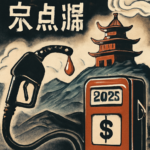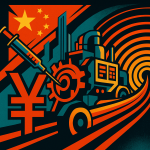Key Points
- Premier Li Qiang (Li Qiang 李强) signaled a massive national push for China’s biopharmaceutical industry, emphasizing accelerated innovation, increased capital deployment, and global leadership in medicine.
- The initiative focuses on supercharging innovation at the source by urging top research centers like Changping Laboratory (Changping Shiyanshi 昌平实验室) to aim for significant original results in new biological targets and compounds.
- Government support extends to major players like BeiGene (Baiji Shenzhou 百济神州), promising policy support in talent acquisition and financing, and encouraging international cooperation.
- A key part of the strategy involves fostering an innovation ecosystem through centers like the Beijing Dipher International Innovation Center (Beijing Feibiao Guoji Chuangxin Zhongxin 北京飞镖国际创新中心), providing one-stop R&D solutions for startups.
- The plan mandates the integration of Artificial Intelligence (AI) across all aspects of the industry, from R&D to clinical trials and manufacturing, and seeks to modernize Traditional Chinese Medicine (TCM) with modern science.

China’s biopharmaceutical industry just got a major signal from the top, and if you’re an investor, founder, or tech operator, you need to pay attention.
On August 20, 2025, Premier Li Qiang (Li Qiang 李强) toured Beijing’s key biopharma hubs, laying out a clear roadmap for the sector’s future.
The message was simple but powerful: accelerate innovation, deploy more capital, and dominate the next frontier of medicine.
Let’s break down exactly what went down and what it means for the future of health tech and drug development.
The Big Picture: A National Mandate for High-Quality Growth
Premier Li didn’t mince words.
He emphasized the need to implement the vision set by General Secretary Xi Jinping for the biopharmaceutical sector.
The core mission? To supercharge the industry by:
- Increasing the supply of high-quality technology.
- Providing robust policy support for innovators.
- Focusing on quality and upgrading a-z of the entire biopharma pipeline.
The ultimate goal is to get more effective new drugs to market, directly impacting the health and well-being of China’s massive population.

Find Top Talent on China's Leading Networks
- Post Across China's Job Sites from $299 / role
- Qualified Applicant Bundles
- One Central Candidate Hub
Your First Job Post Use Checkout Code 'Fresh20'

Deep Dive #1: Fueling Breakthroughs at the Source
- New Biological Targets
- New Chemical Compounds
- New Mechanisms of Action
Inside the Changping Laboratory (Changping Shiyanshi 昌平实验室)
Li’s first stop was the Changping Laboratory, a clear signal that this push starts with foundational research.
He was briefed on progress in diagnosing and treating major diseases.
His key takeaway for the researchers was clear:
Aim higher.
He urged them to focus on the cutting edge of global science, specifically targeting:
- New biological targets
- New chemical compounds
- New mechanisms of action
This isn’t about incremental improvements. It’s about a concentrated, collaborative effort to generate significant original results and cultivate a new generation of high-end life sciences talent.
This is music to the ears of VCs and R&D leaders looking for the next big scientific breakthrough to emerge from China.

ExpatInvest China
Grow Your RMB in China:
- Invest Your RMB Locally
- Buy & Sell Online in CN¥
- No Lock-In Periods
- English Service & Data
- Start with Only ¥1,000

Deep Dive #2: Backing the Big Players and Clearing the Path to Market
Inside BeiGene (Baiji Shenzhou 百济神州)
Next up was a visit to a heavyweight: BeiGene (Baiji Shenzhou 百济神州), a global, commercial-stage biotechnology company.
Here, the conversation shifted from pure R&D to commercialization and global competitiveness.
Li Qiang recognized the immense potential of China’s healthcare market and the broad prospects for innovative new drugs.
For founders and investors, his directives here are pure gold:
- Identify High-Value Projects: The government is being told to proactively find innovative drug projects with high clinical value and strong potential to be commercialized.
- Enhance Support Services: This means actively promoting the adoption and use of these new drugs in medical institutions. No more “innovation sitting on the shelf.”
- Cultivate Quality Enterprises: The government will provide direct policy support for companies like BeiGene in crucial areas like talent acquisition and financing.
- Go Global: Companies are being encouraged to deepen international cooperation to boost their innovation and competitiveness on the world stage.
This is a green light for ambitious biopharma companies. The message is: if you build something great, we will help you fund it, get it approved, and sell it.

Resume Captain
Your AI Career Toolkit:
- AI Resume Optimization
- Custom Cover Letters
- LinkedIn Profile Boost
- Interview Question Prep
- Salary Negotiation Agent

Deep Dive #3: The Startup Playbook – Building an Innovation Ecosystem
Inside the Beijing Dipher International Innovation Center (Beijing Feibiao Guoji Chuangxin Zhongxin 北京飞镖国际创新中心)
To prove this push isn’t just about established giants, Li’s tour included an innovation hub designed to help new ideas get off the ground.
At the Beijing Dipher International Innovation Center, the focus was on accelerating the translation of biopharma innovations from the lab to the market.
Li encouraged the center to beef up its offerings to provide one-stop R&D solutions for emerging pharma companies.
This includes:
- Robust software and hardware support.
- Shared R&D platforms to lower the barrier to entry for startups.
- Comprehensive, full-chain services covering the entire product lifecycle.
- Promoting integration between medicine and engineering.
- Fostering collaboration between industry, academia, and research.
The government wants this model to be replicable and scalable, creating a nationwide network of powerful biotech incubators.

The C-Suite Huddle: Key Mandates for the Future
The visit wrapped with a symposium where Li heard from enterprise leaders, investment firms, and research institutions.
He laid out several critical mandates that will shape the biopharmaceutical industry for years to come.
1. Inject AI into Everything
This was a huge point. Li stressed the need to empower the entire industry with Artificial Intelligence (AI).
He called for improving intelligence levels across:
- Drug research and development (R&D)
- Clinical trials
- Diagnosis and treatment
- Manufacturing and supply chain
2. Streamline Policy and Purchasing
Li called for better coordination on policy for R&D, review/approval, and post-market management.
Crucially, he mentioned optimizing the mechanisms for centralized drug procurement and negotiation, aiming to better reward and guide the use of high-level innovative drugs.
This could be a game-changer, potentially rebalancing the scales to favor true innovation over generics in government tenders.
3. Modernize Traditional Chinese Medicine (TCM)
This is an often-underestimated multi-billion dollar opportunity.
Li Qiang emphasized revitalizing and developing Traditional Chinese Medicine (TCM) by leveraging modern science.
The plan is to use modern tech to deepen the world’s understanding of TCM’s theories, principles, and mechanisms, ultimately advancing the modernization and industrialization of this ancient practice.
What This Means For You
This high-profile visit isn’t just a photo-op; it’s a strategic directive setting the tone for investment and policy for the next 5-10 years.
For anyone operating in or watching the space, the signals are clear: China is putting its full weight behind building a world-leading biopharmaceutical industry.

References
- Li Qiang in Beijing research on the development of the biopharmaceutical industry stressed increasing high-quality scientific and technological supply and policy support to promote the biopharmaceutical industry quality and upgrading – Xinhua News Agency
- BeiGene Official Website
- Eastmoney Official Website





